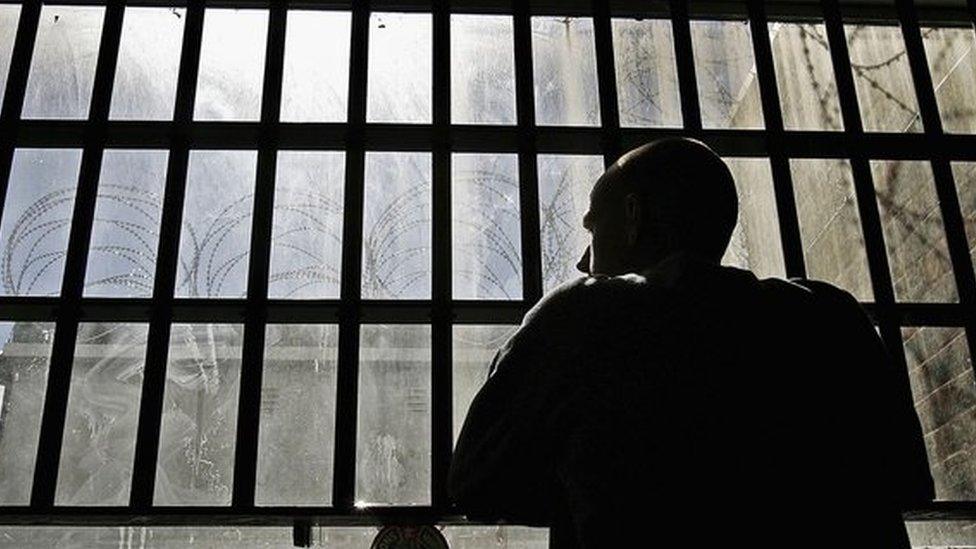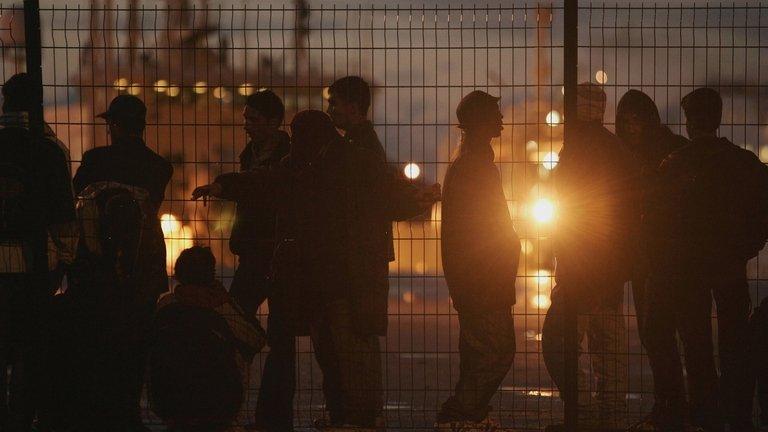Four in 10 planned deportations cancelled - report
- Published

The removal of foreign criminals and immigration offenders are cancelled in 40% of cases, a report has said.
Almost 34,000 airline tickets had to be cancelled in one 18-month period - with lack of staff to escort detainees one reason, the Independent Chief Inspector of Borders and Immigration report said, external.
A separate report suggests officials have lost track of thousands of foreign students whose visas have expired.
The Home Office said it was working to reduce cancelled and failed removals.
In some cases, the government argued cancellations were "out of [its] control", for example because of late legal challenges or disruptive behaviour of those scheduled for deportation.
However, the report said a lack of security staff to accompany detainees on their journey out of the UK was also a "major constraint".
The recorded loss on unused tickets was £1.4m - equivalent to 4% of the total amount spent on tickets
'High risk of cancellation'
On average, the private company which is contracted to provide staff, Tascor, was only able to do so 15 days later than requested, inspectors said.
However, responding to the report, Tascor said it had no contractual requirement to complete removals within a specified timescale.
"The majority of the cancellations fall outside of Tascor's control, largely due to legal challenges or lack of emergency travel documents," the company added.

Analysis

Danny Shaw, BBC News home affairs correspondent
These two, rather dense, inspection reports merit close examination because they touch on a subject of public concern: Why is it that people who have no right to be in the UK cannot be removed?
The reasons are complex because the process is complex. If one link in the chain breaks down - a last-minute legal challenge, missing travel documents or no available security escorts - then the removal has to be cancelled.
However, the 15-day gap between the removal date requested by the Home Office and Tascor being able to provide staff suggests there are some serious recruitment problems that must be urgently addressed.
The worry is that the problems will not be fixed.
As the report on the student visa process points out, a recommendation by inspectors in 2012 for the removal of overseas students who are in the UK illegally to be made a priority has still not been acted upon.

Lucy Moreton, general secretary of ISU, which represents border agency and immigration staff, said recruiting more Tascor personnel could help the deportation process but "whether the Home Office would be prepared to pay for that is another matter".
Speaking on BBC Radio 4's Today programme, she said: "A large number of flights are missed because we simply can't move detainees from one place to another as we need to."
The report found that between October 2014 and March 2015, on average 2.5 flight tickets were issued for each individual successfully removed.
While some departments booked refundable tickets because of the high risk of cancellation, others simply chose the cheapest possible tickets which were normally not refundable, the report said.
The refund rate varied between 48% and 93% and there was "little obvious agreement" within the Home Office about how best to manage the problem, it said.
It recommended a regular review of the reasons for cancelled or failed removals, including those deemed "out of [Home Office] control", and develop guidance for caseworkers, for when to request refundable tickets.
Visa rules
A separate report suggests thousands of foreign students have fallen off the Home Office's radar - meaning the number who may have stayed in Britain illegally is unknown.
To get a visa, foreign students must produce a form from a licensed education establishment, which acts as their sponsor.
Under the terms of their licence, sponsors must notify the Home Office of any changes in a student's circumstances that would affect their sponsorship, such as failure to enrol on their course, a pattern of unauthorised absences, withdrawal or expulsion, or early completion of their studies.
Once notified, officials consider the case and decide whether to end the student's leave to remain in the UK.
The immigration watchdog said it found there was no process in place to monitor individuals in 71,601 cases in the two years to April 2015.
"Many of these individuals might have departed the UK, or might have been granted leave to remain on other grounds. However, the true position, including the number and whereabouts of those who have remained in the UK illegally was not known," the report said.
The Home Office said, external work was "already under way to address the recommendations relating to ticketing and escorting" and accepted all of the chief inspectors recommendations.
- Published22 October 2014
- Published10 February 2015

- Published8 August 2013
